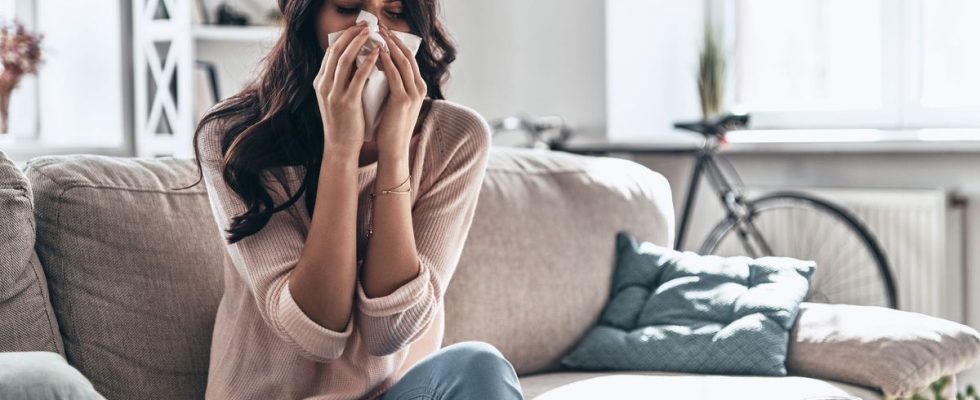Published on
Updated
Reading 2 mins.
in collaboration with
Dr Gérald Kierzek (Medical Director)
Angina, colds and covid make an unexpected return in the heart of summer. A resurgence which is explained by the cool temperatures and the absence of barrier gestures, according to Dr Gérald Kierzek, medical director of Doctissimo.
A fever and a runny nose in the middle of August? It was not necessarily on the program of your vacation, yet it is what many French people are experiencing with this gloomy summer. After the Covid which experienced a cluster at the Bayonne festivities last week, here is the return of colds and winter ailments, especially in the North of France after a wet and cool month of July.
An observation confirmed by Dr Gérald Kiezek:
“There are currently a lot of sick people, with so-called winter pathologies, flu syndromes which are in fact nasopharyngitis. The ENT sphere is affected by viruses, with an inflammatory mucosa, sore throat or even myalgia (muscle pain)”.
Lack of UV and mixing in question
Nothing very surprising, however, with this return of winter illnesses, strongly linked to the meteorological context that France has been experiencing for several weeks, as the doctor explains:
“Generally in summer, viruses are less present, the presence of ultraviolet rays “sterilizes” and naturally reduces the risk of infection. As there is less UV, there is therefore less protection.”
But the lack of sunshine is not the only vector of the current spread. The doctor also recalls the role of “mixing”.
“When it’s cold, even in summer, we live more indoors with less ventilation. Conditions that favor the “culture broth”. While outdoors, barrier gestures (distance, ventilated air) are almost natural; indoors, we do without viruses more”.
The right reflexes to avoid contamination
Summer and winter, there are barrier gestures and habits to know, which are the same whatever the season, to break the chain of transmission and avoid the doctor’s box during your holidays. If you are affected by an influenza-like illness, Dr. Kierzek reminds them:
“The first thing, if you are sick, is to wash your nasal cavities with sea water. Then you have to remember to wash your hands regularly, sneeze into your elbow, and ventilate the rooms. Finally, there is the question of wearing a mask: if you are sick yourself, and you have to go to a populated place, it is better to wear a surgical mask to protect others. On the other hand, there’s no need to wear one as a simple precaution during your holidays: if you’re outdoors and you’re not sick, it’s useless!”.
